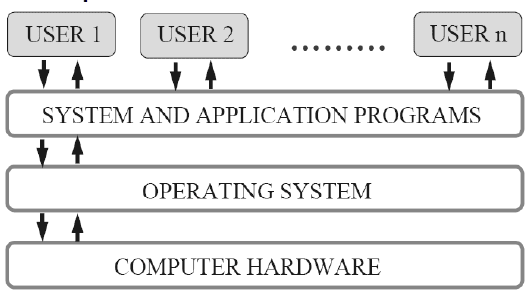Computer vs. Electronic Devices: A Comparative Study
Chapter: 1
A computer is different from other electronic devices because of its generality and programmability. Let
me explain clearly:
1. Programmability
Most electronic devices (like a washing machine,
calculator, microwave, TV, etc.) are designed for a specific purpose.
A computer can be programmed to perform a wide variety
of tasks — from calculations, word processing, games, to controlling
satellites.
2. Versatility
Other devices usually perform one or a few fixed
functions.
A computer can process text, numbers, images, audio,
video, and even control machines — all on the same hardware.
3. Data Processing Ability
Computers can accept input, process it using
instructions, and provide output.
While many electronic devices only transfer or display
signals, computers actually manipulate, store, and analyze data.
4. Storage and Memory
Computers have large storage and memory that allow
them to retain programs and data for reuse.
Most electronic devices don’t have this kind of
advanced storage and retrieval system.
5. Decision-Making (Conditional Operations)
Computers can follow instructions with if/else
conditions, loops, and logic to make decisions automatically.
Other electronic devices cannot alter their
functioning dynamically — they follow a fixed circuit logic.
✅
In short:
A computer is different from other electronic devices because it is a general-purpose, programmable machine capable of storing, processing, and manipulating data, while other devices are usually designed for specific, fixed tasks.
Computer vs Other Electronic Devices
|
Feature |
Computer |
Other Electronic Devices |
|
Purpose |
General-purpose, can perform multiple tasks |
Designed for specific tasks only |
|
Programmability |
Programmable – can run many different software
applications |
Not programmable (fixed functions) |
|
Versatility |
Can process numbers, text, images, audio, video,
etc. |
Limited to one or few functions (e.g., TV → display,
Calculator → calculation) |
|
Data Processing |
Can accept input, process it, store it, and give
meaningful output |
Usually only transmits or displays signals, no
complex processing |
|
Storage & Memory |
Has large memory and storage for data and programs |
Limited or no storage (only small memory, if any) |
|
Decision-making ability |
Can execute conditional operations and make logical
decisions |
Works on fixed circuits, no decision-making |
|
Examples |
Desktop, Laptop, Server, Tablet |
Calculator, Microwave, Washing Machine, TV |
A computer is an electronic, programmable, general-purpose machine that can accept input, process data, store information, and produce meaningful output. Unlike other electronic devices that are designed for specific fixed tasks, a computer can perform multiple functions based on the instructions (programs) given to it.
How Computer is Different from Other Electronic Devices
|
Feature |
Computer |
Other
Electronic Devices |
|
Purpose |
General-purpose – can
do many tasks |
Specific-purpose –
fixed tasks only |
|
Programmability |
Fully programmable
(runs software) |
Not programmable (works
on fixed circuits) |
|
Versatility |
Works with text,
numbers, images, audio, video |
Limited to one/few
functions |
|
Data Processing |
Can process, analyze,
and store data |
Usually only transmits
or displays signals |
|
Storage & Memory |
Large memory and
storage for programs/data |
Very limited or no
storage |
|
Decision-making |
Executes logical
decisions (if/else, loops) |
No conditional
decision-making |
|
Examples |
Desktop, Laptop,
Server, Tablet |
Calculator, Microwave,
TV, Washing Machine |
Key Points
- A computer is programmable;
other devices are not.
- A computer is general-purpose;
others are special-purpose.
- A computer can store, process, and analyze data; others can only perform limited fixed operations.



Comments
Post a Comment